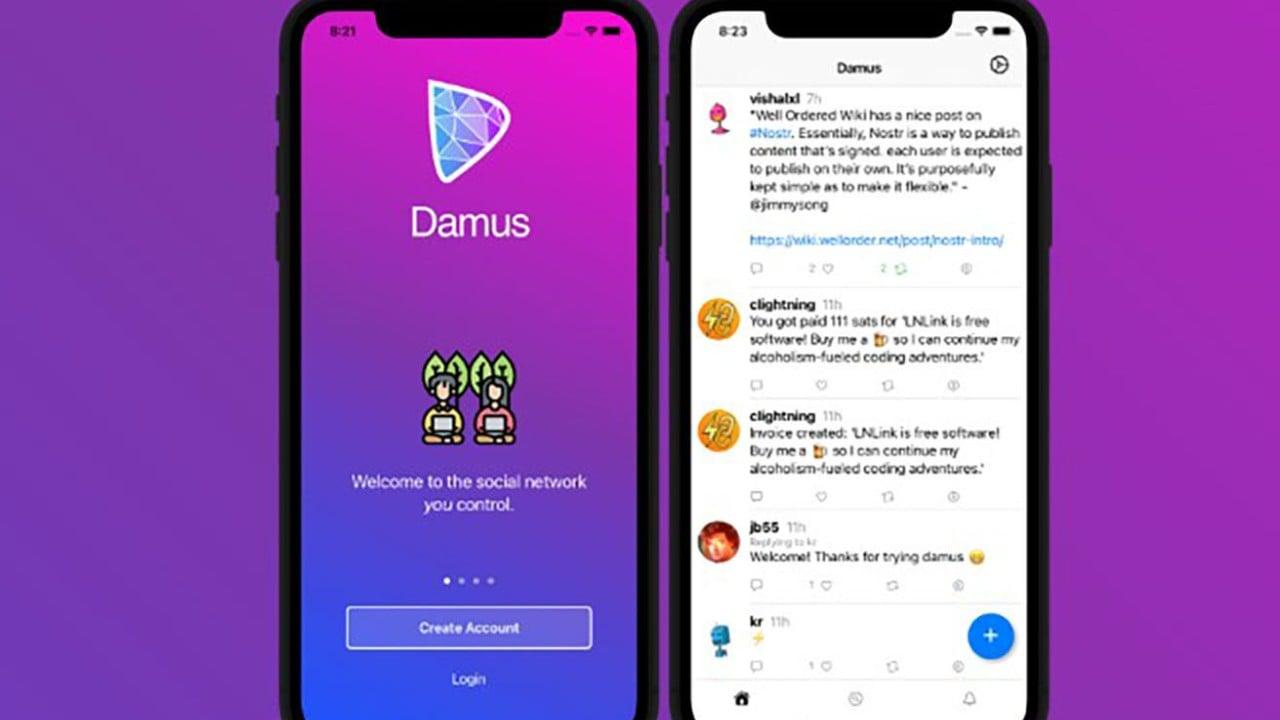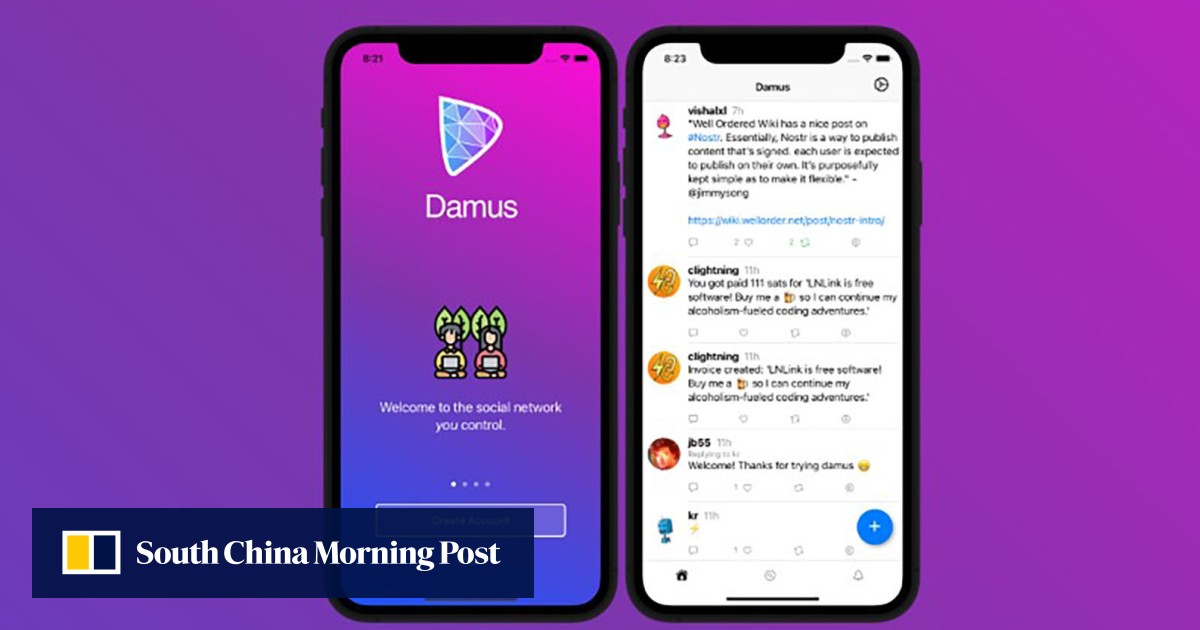

An Android Nostr app named Amethyst was also launched on February 1 on the Google Play Store, which is not accessible in mainland China. A search on local Android app stores, including those run by Xiaomi and Huawei Technologies Co, did not yield any results.
The Nostr protocol, which is technically defined as “a decentralised network based on cryptographic keypairs and that is not peer-to-peer”, reflects demand in China and elsewhere around the globe for technology that enables unfettered social networking at a time when censorship issues are continuing to spread.
An unrestricted microblogging site would provide users on the mainland with an alternative to virtual private networks (VPNs) to bypass information controls from China’s Great Firewall. Damus was ranked 21st among all social iOS apps in China on February 2, up 54 places from the previous day, according to mobile analytics platform Data.ai.
On being barred from China’s app market, fiatjaf said the expectation was that this “would only happen when we had many more people involved to try to deal with these issues in a spontaneous way, each acting according to its own”.
“My naive understanding at this point is that as long as the Great Firewall operates in a ‘blacklist’ manner and not on a ‘whitelist’ way, doors can be open in the form of new relays, at least for a while until they are blocked,” fiatjaf said. “That should be good enough. Hopefully at least a small improvement over the current situation.”
Still, more user education is needed, according to the Nostr creator.
“Nostr clients are empowering the users to understand what relays are and how to interact with them,” fiatjaf said. “Relays shouldn’t be second-class citizens in the protocol, hidden in an ‘advanced settings’ menu no one ever clicks. They must be an integral part of the experience, such that users are able to circumvent the blocks and other issues and move faster than the governments and other attackers.”
A mainland Damus user, who goes by the pseudonym “Don”, said the app remains locally accessible, although downloads for new users has been banned.
Don indicated that the app needs to improve its search function. “It is not very convenient to do a targeted search for a person or institution,” he said.
Mastodon, another decentralised social media platform that was launched in 2017, is not accessible without a VPN, according to Don, who also uses this popular alternative to Twitter. Many widely used Mastodon servers, especially those that cater to Chinese users, are blocked by the Great Firewall.


